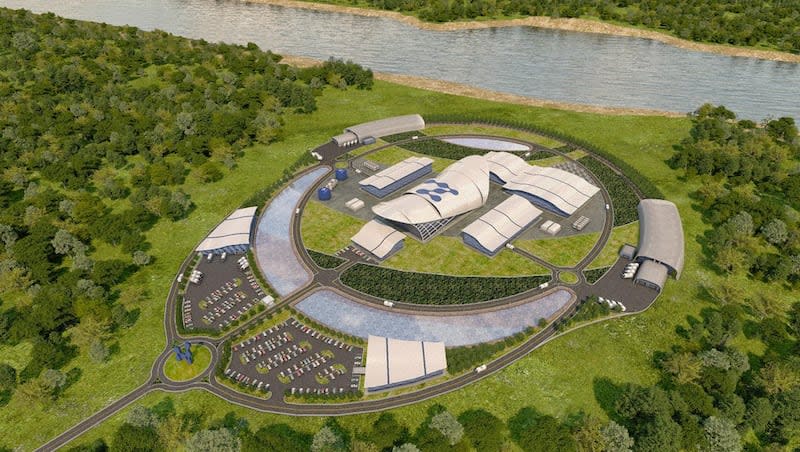Advanced nuclear technology development gets a boost from Rep. Curtis

The House recently passed the Advanced Nuclear Reactor Prize Act introduced by Rep. John Curtis, R-Utah, which authorizes the U.S. Secretary of Energy to award grants to cover fees assessed by the U.S Nuclear Regulatory Commission.
“The costs and red tape associated with our permitting process are proving to be duplicative and ineffective,” Curtis said. “We need innovation in the nuclear space to ensure affordable, reliable and clean energy in our future and Congress must do more to ensure that can happen.”
The Advanced Nuclear Reactor Prize Act would authorize the energy secretary to make targeted awards to cover fees assessed by the Nuclear Regulatory Commission for the first technologies that are licensed and made operational in five unique categories. The prizes, his office said, will incentivize innovation and quality applications, ultimately making it more affordable for first-of-a-kind technology to get through the licensing process.
The expansion of nuclear energy in the United States would support Utah’s uranium industry. This includes mining and the only conventional uranium mill operation in the United States, the White Mesa Mill in San Juan County. Currently, Russia disproportionately controls the uranium supply chain using questionable labor and environmental practices.
Earlier this month, both the House and Congress passed a bipartisan bill to ban imports of uranium into the United States to bolster domestic mining of uranium in this country.
White Mesa is owned by Energy Fuels and produced 162,000 pounds of uranium ore in 2022 from feedstocks that were not produced in Utah. Energy Fuels also secured long-term supply contracts with U.S. nuclear utilities and an additional supply contract for the newly established U.S. Uranium Reserve.
Such incentives perhaps could have helped the Carbon Free Power Project by the Utah Associated Municipal Power Systems get its advanced nuclear project off the ground, pioneered by NuScale, that went through lengthy delays.
“If enacted, this concept could help alleviate the financial burdens developers face during the NRC licensing process for advanced reactor designs,” said Craig Piercy, chief executive officer and excutive director of the American Nuclear Society.
Although it was the first system of its type to get design approval from the U.S. Nuclear Regulatory Commission, it was ultimately derailed in November after the costs became prohibitive for member cities. NuScale has signed multiple contracts with other countries and is proceeding with other projects — which underscores the need for more regulatory relief.
“This government backed support for nuclear projects holds significant promise in fostering innovation and overcoming barriers within the nuclear energy sector,” said Mason Baker, general manger and chief executive officer of the Utah Associated Municipal Power Systems. “We view nuclear power as a valuable dispatchable energy source, and we will continue to look at resources, such as this, that have the potential to minimize risks and ultimately make the process more affordable.
The bill previously passed the House in February 2024. To fast track the bill into law, it was added to Section B of S. 870, which amends the Federal Fire Prevention and Control Act — giving it a boost for survival. It now awaits U.S. President Joe Biden’s signature.

